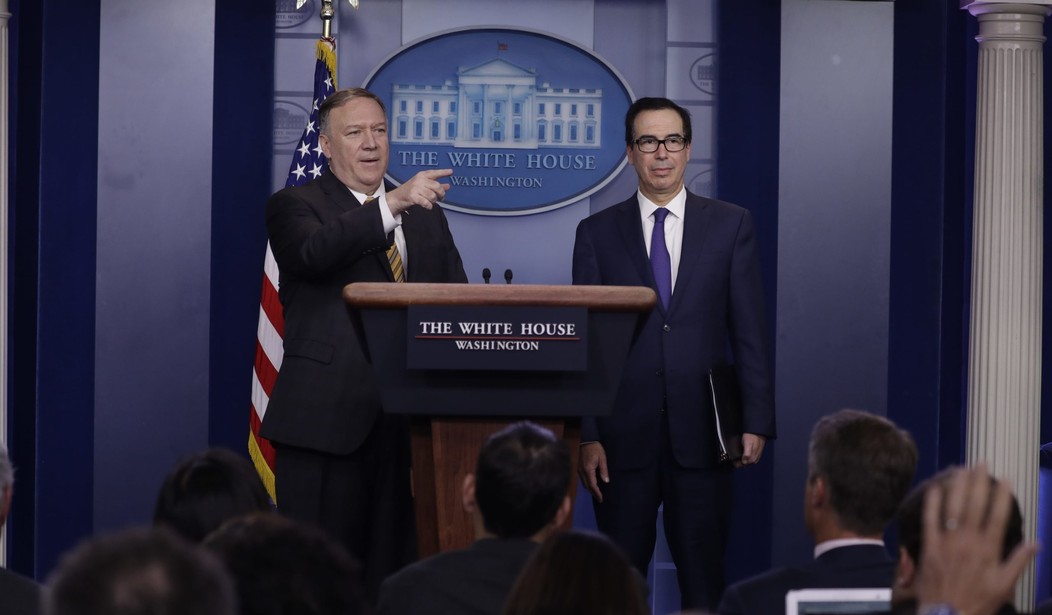Donald Trump signed a new executive order that would target terrorist leaders without having to tie them to specific acts. The significance is that foreign financial institutions that profit handsomely by moving and hiding terrorist money have been put on notice that the U.S. is watching.
The executive order amends a previous directive to allow the State and Treasury Departments to directly target leaders of terrorist groups and associated entities without having to tie them to specific acts, Pompeo said.
He also said it “more effectively and efficiently targets individuals and entities who participate in terrorist training, and provides new authorities to impose sanctions on foreign financial institutions that knowingly do business with terrorists.”
Mnuchin said the executive order “greatly enhances our ability to identify, sanction and deter perpetrators of terrorism worldwide.”
In conjunction with the announcement, the Treasury Department sanctioned more than a dozen leaders, individuals and entities affiliated with designated terror groups, including those affiliated with ISIS and Iran’s Revolutionary Guards Corps Qods Force. The State Department also announced 12 new terrorist designations on Tuesday.
The announcement came on the eve of the anniversary of the Sept. 11, 2001, attacks. Pompeo called the measure the “most significant update” to counterterrorism authorities in 18 years.
This executive order will hit the terrorists where it hurts: the networks that finance their acts.
“These new authorities will allow the U.S. government to starve terrorists of resources they need to attack the United States and our allies, and will hold foreign financial institutions who continue to do business with them accountable,” Mr. Mnuchin said.
Many of the targets of Tuesday’s sanctions are companies that exchange one currency for another as part of an alleged attempt to hide the intended source and intended terror-financing recipients. Those exchange houses, U.S. officials and terror experts say, are key conduits for financing Hezbollah, Hamas, the IRGC and other groups.
Under the new powers, any foreign financial institution that is found to have conducted terror-linked transactions risks losing access to the dollar and the world’s most important financial system, a sanction that has often spelled the end of financial institutions.
Many of the targets also have operations in Turkey, highlighting a major concern among U.S. officials that lax financial and corporate oversight by the government in Ankara has allowed terror financing and evasion of sanctions to proliferate in the country. The Turkish Embassy in Washington didn’t immediately respond to a request for comment.
The order is referred to as a “modernization” of our counter-terrorism efforts. That much is true. Before 9/11, we didn’t have the ability to identify and track these networks. But thanks to numerous agreements — both international and bilateral — the international financial system can now take action.
It’s just one more indication that 18 years after 9/11, the fight goes on with no end in sight.









Join the conversation as a VIP Member